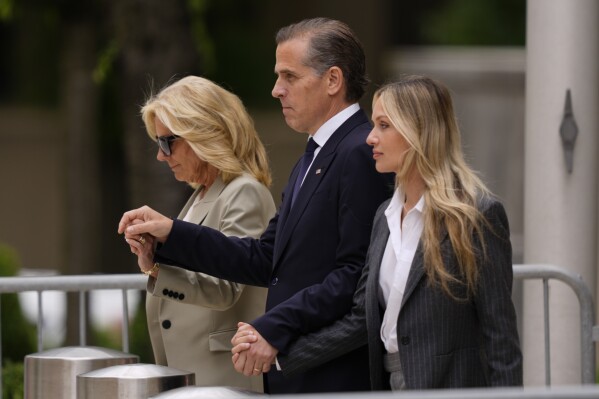State panel presents final revenue projections before Delaware lawmakers vote on budget bills
DOVER, Del. (AP) — The panel that sets Delaware’s official revenue estimates made only minor tweaks to its projections Monday as lawmakers prepare to vote in the coming days on budget bills for the fiscal year starting July 1.
The Delaware Economic and Financial Advisory Council added $2.4 million to its May revenue estimate for the current fiscal year, and $31.3 million to its estimate for fiscal 2025.
The final fiscal 2024 estimate reflects only 1.2% revenue growth over 2023, while the fiscal 2025 revenue estimate of $6.45 billion is only 1.3% higher than the current year’s final estimate of $6.37 billion.
Despite essentially flat revenue projections, estimated spending for this year is 7% higher than last year, when the budget grew 8%. For the upcoming fiscal year, estimated general fund spending has risen to about $6.9 billion, up from $6.27 billion this year.
“Our growth is out-tracking our revenue,” state budget director Cerron Cade told DEFAC members Monday.
Cade asserted, however, that officials are not looking to spend taxpayer money on “frivolous things.” He cited increasing health care costs and the need to keep wages and salaries for state government workers competitive.



With Monday’s revisions, the state is expected to end the current fiscal year on June 30 with a surplus of $573.5 million, not including reserve funds totaling more than $1.3 billion.
In January, Democratic Gov. John Carney proposed a state operating budget of more than $6 billion for the fiscal year starting July 1, an increase of more than 8%.
In addition to the operating budget, Carney proposed a capital budget of $944 million for construction, maintenance, transportation and economic development projects. That’s roughly $500 million less than this year’s capital budget.
Carney also recommended a grants package of $66.5 million for community organizations, nonprofit groups and volunteer fire companies. That’s down slightly from this year’s record $72 million.
The final component of Carney’s proposed spending plan was a one-time appropriation of $92 million for various programs, including $56 million for non-pension retiree benefits.
State lawmakers are expected to vote on the budget bills next week. The legislative session concludes June 30.
Disclaimer: The copyright of this article belongs to the original author. Reposting this article is solely for the purpose of information dissemination and does not constitute any investment advice. If there is any infringement, please contact us immediately. We will make corrections or deletions as necessary. Thank you.




